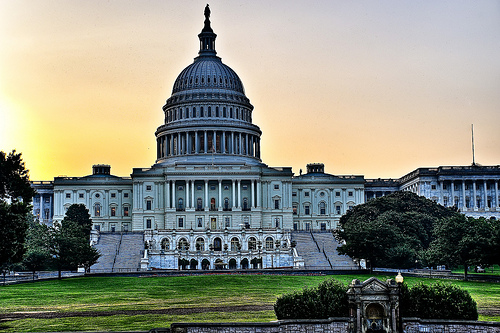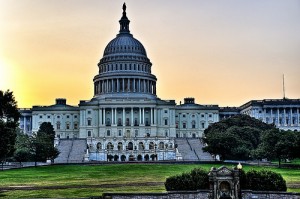113th Congress: Latino expectations for 2013

Latinos are poised to play an increasing role this year and there is already a list of pending issues that supporters hope will be addressed in the upcoming 113th Congress.
With the new Congress stepping in Jan 3, analysts indicate the time is ripe to present a list of viable concerns ranging from immigration reform, health care, education to gun rights. The fiscal cliff agreement in Congress also elevated expectation of unraveling partisan gridlock.
 What does the fiscal cliff say about immigration reform?
What does the fiscal cliff say about immigration reform?
One of the top issues that advocates say will be dominating Latino leaders in the next Congress is immigration reform. While administration officials asserted that the president’s priority was resolving the economic crisis, supporters have affirmed that they will keep exerting pressure on President Obama.
And some analysts were looking into the fiscal cliff negotiations as a precursor to future relevance into this topic. Whether the president will be able to unravel partisan gridlock has become more heightened now that there was partial agreement on the fiscal cliff crisis.
“Some would argue the more polarized the environment gets, the least likely immigration reform is and that’s certainly a possibility,” said Alfonso Aguilar, executive director of the Latino Partnership for Conservative Principles.
“But I think there’s a second possibility. Republicans will see that they can’t be fighting continuously with Democrats and the White House. That they will pick their battles,” he said.
Aguilar added that if Latino voters seek confrontation on every single issue Republicans will eventually be blamed. Yet, if the GOP stands strong on fiscal cliff principles, while being constructive on other issues dear to the Latino community including immigration, he believes there’s still a path for consensus.
Unresolved concerns on economy, education and health care in next Congress
The top concerns for Latino voters also include education, health care and the economy. There’s still a heightened argument that not nearly enough attention has been paid to pressing concerns that have dominated the community throughout the years.
Juan Sepulveda, senior advisor for the Democratic National Committee, was quoted in a news article indicating that more funding should be allocated to educational institutions that are key for Latinos. One of those programs includes early childhood education and public funding for community colleges. Advocates also add that the recession has taken a toll locally affecting education initiatives such as bilingual education in some areas as state budgets have been slashed.
The dilemma over the economic recession has also prompted debate on bringing back jobs. Some question whether there is a specific agenda in place that would link economic policy to Latino job skills. Retraining a workforce that also lost their jobs during the recession has pushed some to question the role Secretary of Labor Hilda Solis will play in the next administration.
Added on the list of concerns include the president’s signature legislation known as the Affordable Care Act. The administration promised to increase the level of health insurance among people of color including Latinos. That’s also taking into consideration that nearly one in three people uninsured in the United States are Hispanic, according to statistics gathered from the U.S. Census Bureau.
Hispanic lawmakers will be sworn in
The swearing in ceremony of key Hispanic lawmakers will take place tomorrow and with that comes the expectation that concerns of the Hispanic community will be addressed in the next Congressional cycle. The Congressional Hispanic Caucus was one of the organizations that was quick to praise the negotiation efforts to avoid the tax hikes on all Americans.
“The Congressional Hispanic Caucus is relieved that 114 million middle class households will have their tax rates maintained and that other working families tax credits will continue permanently,” according to a statement released by CHC.
“In 2013 and the 113th Congress, the CHC looks forward to building on this first step and working toward income tax code reform, President Obama’s jobs bill and comprehensive immigration reform, all of which will add to our economic recovery.”
Eyes are equally set on Republican Hispanic members in the Senate including Tea Party endorsed Senator-elect Ted Cruz of Texas and Sen. Marco Rubio of Florida. Rubio was one of the eight Senators who opposed the bill being pushed in Congress on the fiscal cliff.
On the House side, the increase of Hispanics in the U.S. House of Representatives is four—up to 28 from 24. The 113th Congress will welcome the largest class of Hispanics in the nation’s history.
Still, Aguilar believes although there’s a long list of issues including gun control legislation of which polls indicate mixed reviews from Latinos, the dominating agenda among Hispanic lawmakers and the community will be the economy and immigration reform.
“If you look at the agenda of this president and this Congress, it will certainly be the fiscal issues as it relates to the economy and immigration,” said Aguilar.
This article was first published in Voxxi.
Raisa Camargo is a staff writer at Voxxi.
[Photo by Francisco Diez]

